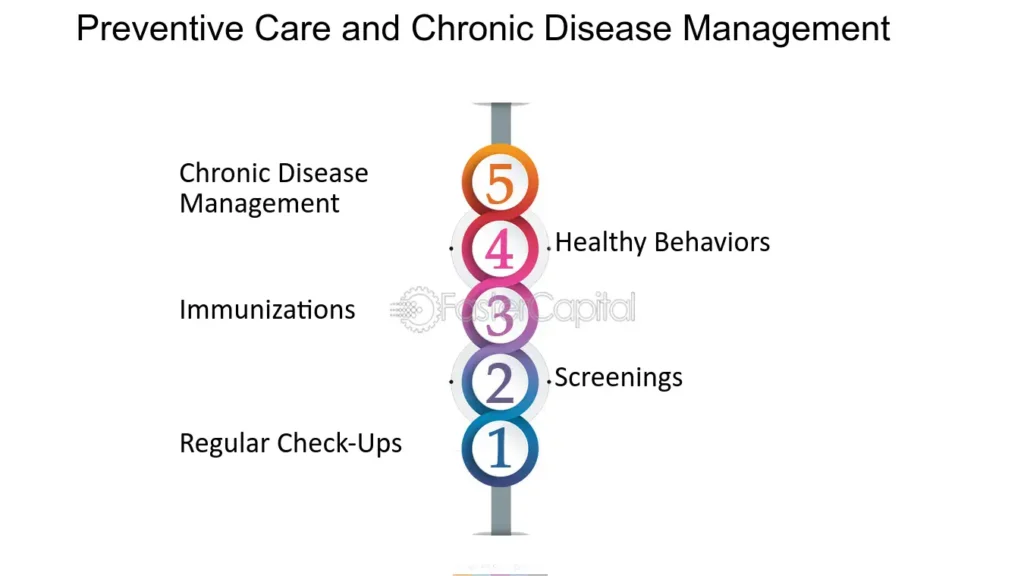Chronic diseases, such as diabetes, heart disease, asthma, and arthritis, have become a significant health challenge globally. According to the World Health Organization (WHO), these conditions account for approximately 71% of all deaths worldwide. Chronic disease management (CDM) encompasses a systematic approach that seeks to address the complexities of living with these long-term health issues. This article explores the critical components of CDM, highlighting the importance of patient education, multidisciplinary care, personalized treatment plans, and the role of technology. The ultimate goal of effective chronic disease management is to improve patient outcomes, enhance quality of life, and reduce the economic burden on healthcare systems.
The Importance of Chronic Disease Management
Chronic disease management is essential for several reasons. It directly impacts the quality of life of individuals living with long-term health conditions. Chronic diseases often lead to physical limitations, emotional distress, and social isolation, making effective management crucial. Implementing CDM strategies can lead to fewer hospital admissions, reduced healthcare costs, and better health outcomes. A proactive and coordinated approach not only helps manage the symptoms of chronic diseases but also empowers patients to take charge of their health.
Patient Education and Empowerment
At the heart of chronic disease management lies patient education. Empowering patients with knowledge about their conditions is vital for effective self-management. When individuals understand their illness, treatment options, and the importance of adherence to their care plans, they are more likely to engage actively in their health journey. Educational initiatives can take many forms, including workshops, informational resources, and digital platforms that provide essential information and support.
Multidisciplinary Care Teams
The complexity of chronic diseases necessitates a collaborative approach involving various healthcare professionals. Multidisciplinary care teams play a crucial role in chronic disease management. These teams typically include physicians, nurses, dietitians, mental health professionals, and other specialists who work together to address all aspects of a patient’s health. By fostering collaboration, care teams can develop comprehensive treatment plans that consider physical, emotional, and social factors, ultimately leading to improved patient outcomes.
Personalized Care Plans
One-size-fits-all approaches are ineffective in chronic disease management. Each patient’s experience is unique, requiring tailored care plans that consider individual medical histories, lifestyles, and treatment goals. Personalized care plans ensure that patients receive relevant interventions that resonate with their specific needs, encouraging active participation in their treatment process. Such an approach not only enhances adherence but also improves the overall effectiveness of management strategies.
Regular Monitoring and Follow-Up
Continuous monitoring and regular follow-up appointments are crucial in chronic disease management. These practices allow healthcare providers to assess the effectiveness of treatment plans, make necessary adjustments, and prevent potential complications. With advancements in technology, telehealth services have become invaluable in maintaining ongoing patient engagement. Remote monitoring tools enable healthcare providers to gather real-time data and provide timely interventions, reducing the need for frequent in-person visits while ensuring consistent support.
Lifestyle Modifications
Lifestyle factors significantly influence the progression of chronic diseases. Effective chronic disease management includes promoting healthy lifestyle changes, such as improved nutrition, increased physical activity, smoking cessation, and stress management techniques. By incorporating these changes into their daily lives, patients can gain greater control over their health and reduce the severity of their conditions. Supportive interventions, such as nutrition counseling and exercise programs, can facilitate these lifestyle modifications and enhance overall well-being.
The Role of Technology in Chronic Disease Management
The integration of technology into chronic disease management has revolutionized how patients engage with their health. Wearable devices and mobile applications provide individuals with the tools to track vital health metrics, monitor symptoms, and communicate with healthcare providers. For example, glucose monitors for diabetes management offer real-time data, allowing patients to adjust their diets or medications promptly. Technology also fosters greater patient engagement, as individuals can access educational resources and receive reminders for medication adherence.
Challenges in Chronic Disease Management
Despite the advancements in chronic disease management, significant challenges remain. Healthcare disparities, limited access to care, and the need for ongoing patient engagement hinder effective management. Many patients encounter barriers such as financial constraints, transportation issues, or inadequate support systems. Addressing these challenges requires a concerted effort from healthcare providers, policymakers, and community organizations to create more accessible and equitable healthcare solutions.
Future Directions in Chronic Disease Management
Looking ahead, the landscape of chronic disease management is set to evolve further. Future strategies may prioritize the integration of innovative technologies, enhance patient engagement initiatives, and emphasize preventive care measures. Furthermore, addressing social determinants of health, such as housing stability and access to nutritious food, will be essential in promoting better health outcomes for individuals with chronic conditions.
Conclusion
Chronic disease management is a crucial component of healthcare that focuses on enhancing the quality of life for individuals living with long-term conditions. Through patient education, multidisciplinary care, personalized treatment plans, and lifestyle modifications, effective CDM strategies can lead to improved health outcomes and reduced burdens on healthcare systems. Embracing innovative solutions and addressing existing challenges will be essential as we work towards a healthier future for all individuals living with chronic diseases.





